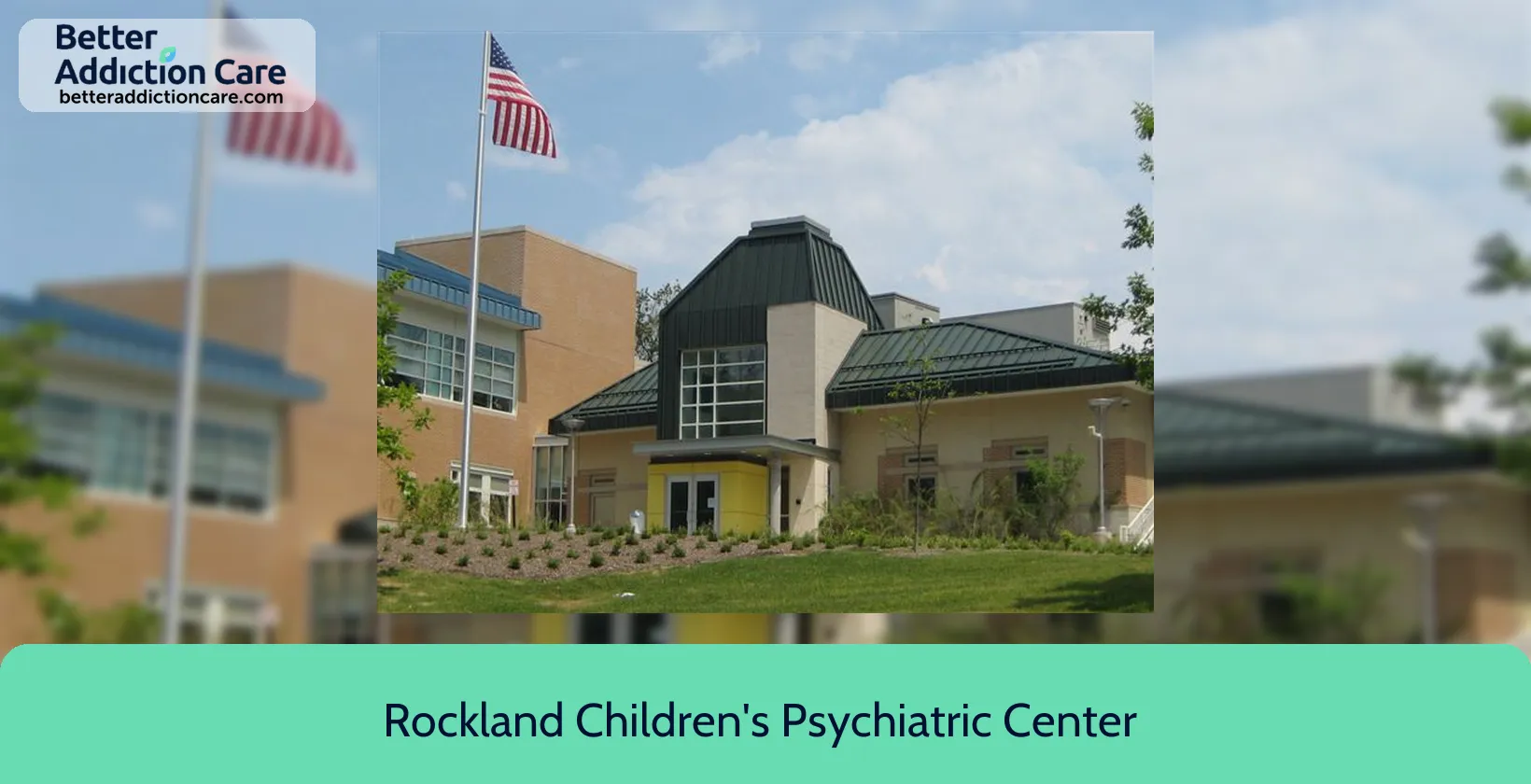Rockland Children's Psychiatric Center - Psychiatric Inpatient Unit
Overview
Rockland Children's Psychiatric Center - Psychiatric Inpatient Unit is a mental health treatment center for people seeking treatment near Rockland County. As part of their treatment modalities for recovery, Rockland Children's Psychiatric Center - Psychiatric Inpatient Unit provides couples/family therapy, group counseling, and cognitive behavioral therapy during treatment. Rockland Children's Psychiatric Center - Psychiatric Inpatient Unit is located in Orangeburg, New York, accepting medicaid for treatment.
Rockland Children's Psychiatric Center - Psychiatric Inpatient Unit at a Glance
Payment Options
- Medicaid
- Medicare
- State-financed health insurance plan other than Medicaid
- Private health insurance
- State mental health agency (or equivalent) funds
Assessments
- Screening for tobacco use
- Comprehensive mental health assessment
Age Groups
- Children/adolescents
Ancillary Services
- Intensive case management
- Case management service
- Diet and exercise counseling
- Education services
- Family psychoeducation
Highlights About Rockland Children's Psychiatric Center - Psychiatric Inpatient Unit
6.88/10
With an overall rating of 6.88/10, this facility has following balanced range of services. Alcohol Rehabilitation: 8.00/10, Drug Rehab and Detox: 6.00/10, Insurance and Payments: 6.67/10, Treatment Options: 6.85/10.-
Alcohol Rehabilitation 8.00
-
Treatment Options 6.85
-
Insurance and Payments 6.67
-
Drug Rehab and Detox 6.00
Accreditations
The Joint Commission:

The Joint Commission accreditation signifies that a facility has met rigorous standards of excellence in patient care, treatment, and safety. It assures individuals and healthcare professionals that the accredited facility provides high-quality, evidence-based care for addiction and mental health issues, fostering trust and confidence in their services.
Effective date: 10/08/2016
Registration: 1127
Treatment At Rockland Children's Psychiatric Center - Psychiatric Inpatient Unit
Treatment Conditions
- Mental health treatment
Care Levels
- Hospital inpatient/24-hour hospital inpatient
Treatment Modalities
- Couples/family therapy
- Group counseling
- Cognitive behavioral therapy
- Dialectical behavior therapy
- Activity therapy
Ancillary Services
Languages
- Sign language services for the deaf and hard of hearing
Special Programs
- Children/adolescents with serious emotional disturbance (SED)
- Persons 18 and older with serious mental illness (SMI)
Contact Information
Read our Most Recent Article About Drug Addiction
DISCLAIMER: The facility name, logo and brand are the property and registered trademarks of Rockland Children's Psychiatric Center - Psychiatric Inpatient Unit, and are being used for identification and informational purposes only. Use of these names, logos and brands shall not imply endorsement. BetterAddictionCare.com is not affiliated with or sponsored by Rockland Children's Psychiatric Center - Psychiatric Inpatient Unit.









